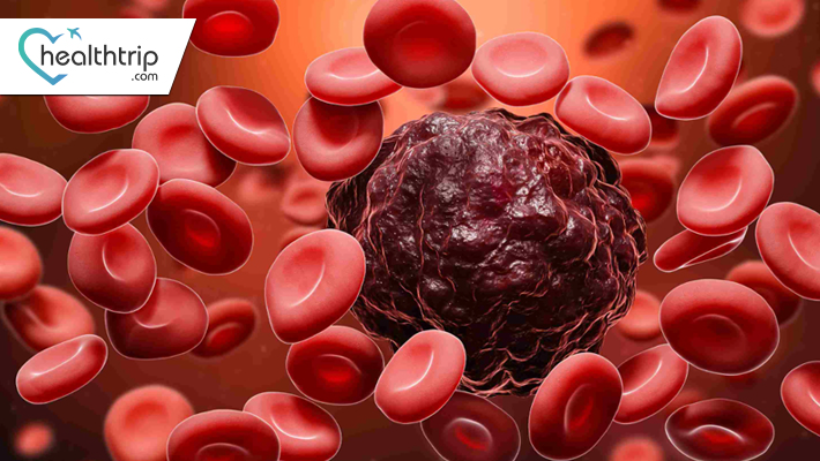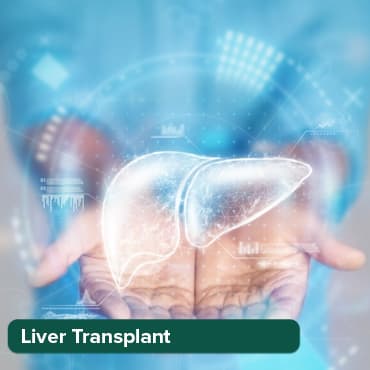
Is Blood Cancer Curable?: Breaking Down Blood Cancer
07 Aug, 2022
 Healthtrip Team
Healthtrip TeamBlood cancer, also referred to as hematologic cancer, constitutes a diverse spectrum of malignancies that profoundly affect the blood, bone marrow, and lymphatic system. Despite the common apprehension associated with the term "cancer," it is pivotal to recognize the substantial strides made in the realm of diagnosing and treating blood cancer. In this comprehensive blog, we embark on an exploration of the multifaceted domain of blood cancer, encompassing its various types, diagnostic methodologies, and advanced treatment modalities.
Understanding embark on a rampant multiplication spree, perturbing the production and functionality of normal blood cells. It is paramount to grasp the significance of early detection and the remarkable advancements in therapeutic interventions, which have distinctly elevated the survival rates of individuals grappling with blood cancer. Now, let us embark on a deeper voyage into this intricate subject matter.
Transform Your Beauty, Boost Your Confidence
Find the right cosmetic procedure for your needs.

We specialize in a wide range of cosmetic procedures

Types of Blood Cancer:
a. Leukemia:
Leukemia, the harbinger of blood cancer, branches into various subtypes, each with its unique characteristics and target demographic.
- Acute Lymphoblastic Leukemia (ALL): ALL is an expeditiously progressing form of blood cancer that predominantly affects white blood cells, frequently encountered in children.
- Acute Myeloid Leukemia (AML): AML is a swiftly proliferating leukemia that can afflict both children and adults alike.
- Chronic Lymphocytic Leukemia (CLL): CLL follows a leisurely pace of progression and primarily afflicts adults, necessitating a distinct approach to management.
- Chronic Myeloid Leukemia (CML): Distinguished by a genetic anomaly, CML primarily affects adults, demanding specialized attention and therapeutic strategies.
b. Lymphoma:
Most popular procedures in India
Atrial septal defect
Upto 80% off
90% Rated
Satisfactory

Coronary Angiogram a
Upto 80% off
90% Rated
Satisfactory

Coronary Angiogram C
Upto 80% off
90% Rated
Satisfactory

Liver Transplant
Upto 80% off
90% Rated
Satisfactory

Total Hip Replacemen
Upto 80% off
90% Rated
Satisfactory

Lymphoma takes two distinctive forms, each characterized by its unique attributes.
- Hodgkin Lymphoma: This variant is marked by the presence of Reed-Sternberg cells, serving as a diagnostic hallmark.
- Non-Hodgkin Lymphoma: A versatile cluster of lymphomas, non-Hodgkin lymphoma encompasses diverse subtypes, underlining the criticality of precise diagnosis.
c. Multiple Myeloma:
Multiple myeloma exerts its influence on plasma cells and poses a substantial threat to bone health and the immune system, necessitating meticulous attention.
Diagnosis of Blood Cancer:
The bedrock of effective blood cancer management rests upon the accuracy of its diagnosis, encompassing a multifaceted approach.
1. Physical Examination: Astute healthcare providers diligently scrutinize physical indicators such as lymph node enlargement, inexplicable fatigue, and unanticipated weight loss.
2. Blood Tests: Specialized blood assessments come into play, meticulously scrutinizing blood cell counts and discerning markers that are specific to diverse blood cancer types.
3. Bone Marrow Biopsy: The indispensable bone marrow biopsy entails the extraction of a petite marrow sample, enabling the identification of irregularities and facilitating the classification of blood cancer type and stage.
4. Imaging Tests: Advanced imaging modalities, including X-rays, CT scans, MRIs, and PET scans, serve as invaluable tools in gauging the cancer's extent and its repercussions on vital organs and lymph nodes.
5. Genetic Testing: Genetic testing emerges as a pivotal facet of the diagnostic process, pinpointing genetic mutations and abnormalities, thereby charting the course for tailor-made treatment strategies.
Is blood cancer curable?
Curability of Blood Cancer: Blood cancer is a broad term that encompasses various types, including leukemia, lymphoma, and multiple myeloma. Each of these blood cancer types has different characteristics, and therefore, the potential for cure varies.
a. Is Leukemia Curable?
Leukemia is a complex group of blood cancers with different subtypes, and the curability varies depending on the specific type:
1. Acute Leukemia (ALL and AML):
- Acute Lymphoblastic Leukemia (ALL): This type of leukemia is often curable, especially in children. With intensive chemotherapy and, in some cases, stem cell transplantation, many patients can achieve complete remission, meaning no evidence of cancer can be detected in the body.
- Acute Myeloid Leukemia (AML): AML can also be curable with aggressive treatment approaches. Intensive chemotherapy and sometimes stem cell transplantation are used to achieve complete remission.
2. Chronic Leukemia (CLL and CML):
- Chronic Lymphocytic Leukemia (CLL): CLL may not always be curable, but it is considered a chronic condition that can be managed effectively for many years. Treatment aims to control the disease, reduce symptoms, and improve quality of life.
- Chronic Myeloid Leukemia (CML): CML can often be controlled with targeted therapies known as tyrosine kinase inhibitors. Some patients achieve long-term remission, although it may not be considered a cure.
b. Is Hodgkin Lymphoma Curable?
Hodgkin Lymphoma generally has a high cure rate, especially when diagnosed in the early stages. Treatment typically involves chemotherapy and radiation therapy. Many patients with Hodgkin Lymphoma can achieve complete remission, which means there is no detectable cancer in the body.
c. Is Non-Hodgkin Lymphoma Curable?
Non-Hodgkin Lymphoma is a diverse group of lymphomas, and the curability varies depending on the subtype and stage:
- Some subtypes of Non-Hodgkin Lymphoma can be curable with appropriate treatment, especially when diagnosed at an early stage.
- Other subtypes may be more challenging to cure, but treatment options include chemotherapy, radiation therapy, targeted therapy, and immunotherapy. The goal is to achieve remission and manage the disease effectively.
d. Is Multiple Myeloma Curable?
Multiple Myeloma is generally considered incurable, but significant progress has been made in its treatment:
- Treatment options for multiple myeloma include chemotherapy, stem cell transplantation, targeted therapy, and immunotherapy.
- While a complete cure may be rare, many patients can achieve long periods of remission, during which the disease is under control and symptoms are managed effectively.
- Advances in multiple myeloma treatments continue to improve outcomes and extend survival for patients.
Factors Affecting Curability: Several factors influence the curability of blood cancer:
- Type and Subtype: Different blood cancer types and subtypes have varying responses to treatment. Some are more aggressive and may be harder to cure, while others are more responsive to therapy.
- Stage at Diagnosis: Early diagnosis significantly improves the chances of cure. Cancers detected at an early stage are often more treatable than those diagnosed at advanced stages.
- Treatment Options: Advances in medical science have led to the development of targeted therapies and immunotherapies, which have improved the curability of some blood cancers.
- Individual Response: Each patient's response to treatment is unique. Some individuals may respond exceptionally well to therapy, leading to complete remission and potential cure, while others may have a less favorable response.
- Genetic Factors: Genetic mutations and abnormalities can impact the response to treatment and the overall prognosis.
Whether blood cancer is curable depends on several factors, including the specific type, stage, and individual patient characteristics. Many patients with blood cancer can achieve remission and lead fulfilling lives with appropriate treatment and medical advances. Early diagnosis and access to specialized care play a crucial role in improving curability rates. While not all cases may be curable, significant progress has been made in the treatment of blood cancer, offering hope and improved outcomes for many patients. Consulting with healthcare professionals and following personalized treatment plans is essential for the best possible outcome.
Also, Read - What Are The 7 Warning Signs Of Cancer?
Treatment Options for Blood Cancer
1. Chemotherapy:
Chemotherapy is a widely used treatment for various types and stages of blood cancer. This approach employs potent drugs that can be administered through various methods, including oral pills, intravenous (IV) infusion, injections, or topical creams. Chemotherapy works by disrupting the cell division process, preventing cancer cells from multiplying. However, it's important to note that it may also affect some healthy cells, leading to side effects such as nausea, hair loss, and fatigue. Chemotherapy is particularly effective in treating acute forms of leukemia like Acute Lymphoblastic Leukemia (ALL) and Acute Myeloid Leukemia (AML).
2. Radiation Therapy:
Radiation therapy is a precise and localized treatment option for certain blood cancers. It utilizes high-energy radiation beams, often delivered externally through machines called linear accelerators, to target and destroy cancer cells while sparing nearby healthy tissues. The therapy works by damaging the DNA inside cancer cells, preventing them from multiplying. Radiation therapy is commonly used to treat localized forms of blood cancer or lymphomas, specifically targeting affected areas. It offers an effective way to manage and eradicate cancer cells in specific regions of the body.
3. Stem Cell Transplant (Hematopoietic Stem Cell Transplantation):
Stem cell transplant, also known as hematopoietic stem cell transplantation, is a critical treatment option for aggressive forms of blood cancer. This procedure involves the replacement of damaged or cancerous bone marrow with healthy stem cells. These stem cells can either come from the patient themselves (autologous transplant) or a compatible donor (allogeneic transplant). Before the transplant, patients often receive high-dose chemotherapy and/or radiation to eliminate cancer cells and prepare the body for the transplant. Stem cell transplant offers a chance for remission by rebuilding a healthy blood and immune system, making it a vital treatment option for conditions like Acute Leukemia and high-risk Multiple Myeloma.
4. Targeted Therapy:
Targeted therapy is a revolutionary approach in blood cancer treatment. This method employs drugs specifically designed to target unique features or mutations in cancer cells, minimizing harm to healthy cells. Targeted therapy disrupts specific molecules or pathways crucial for cancer cell survival and growth. It has shown remarkable success in treating conditions like Chronic Myeloid Leukemia (CML), certain lymphomas, and some cases of Acute Lymphoblastic Leukemia (ALL). This personalized treatment approach has opened up new possibilities for patients who may not respond as effectively to traditional chemotherapy, offering hope for improved outcomes and reduced side effects.
5. Immunotherapy:
Immunotherapy is a groundbreaking treatment option for blood cancer patients. This approach harnesses the body's immune system to identify and eliminate cancer cells. It includes various techniques such as checkpoint inhibitors, CAR T-cell therapy, and monoclonal antibodies. Immunotherapy enhances the immune system's ability to recognize and attack cancer cells, making it a powerful tool against diseases like Non-Hodgkin Lymphoma and refractory Acute Lymphoblastic Leukemia (ALL). Immunotherapy has emerged as a game-changer in the field of blood cancer treatment, offering the promise of improved survival rates and a brighter future for patients.
These treatment options are essential components of the comprehensive approach to managing blood cancer. It's crucial for patients and their healthcare teams to collaborate in tailoring the most suitable treatment plan based on the specific type and stage of blood cancer, ensuring the best possible outcomes and quality of life.
So to wrap it up, if you have cancer, you should not be concerned. Science has now provided an answer to your problem. And with the best treatment and care, you'll be back to your normal. life in no time. Just keep a positive and hopeful attitude throughout your treatment. No matter what type of cancer you have, you can now easily find treatment for it.
Also, Read - Chemotherapy Side Effects
How can we help with the treatment?
If you are in search of blood cancer treatment in India, we will serve as your guide throughout the treatment. Our health trip advisors will be physically present with you even before the treatment begins. The following will be provided to you:
- Connect with renowned doctors from a network spanning 35+ countries and access the world's largest health travel platform.
- Collaboration with 335+ top hospitals , including Fortis and Medanta.
- Comprehensive treatments from Neuro to Cardiac to Transplants, Aesthetics, and Wellness.
- Post-treatment care and assistance.
- Teleconsultations at $1/minute with leading surgeons.
- Trusted by 44,000+ patients for appointments, travel, visa, and forex assistance.
- Access top treatments and packages, such as Angiograms and many more.
- Gain insights from genuine patient experiences and testimonials.
- Stay updated with our medical blog.
We are dedicated to offering the highest quality health care services to our patients. We have a team of highly qualified and devoted health trip advisors who will be by your side from the beginning of your medical tourism.
So to wrap it up, if you have cancer, you should not be concerned. Science has now provided an answer to your problem. And with the best treatment and care, you'll be back to your normal. life in no time. Just keep a positive and hopeful attitude throughout your treatment. No matter what type of cancer you have, you can now easily find treatment for it.
Wellness Treatment
Give yourself the time to relax
Lowest Prices Guaranteed!

Lowest Prices Guaranteed!




